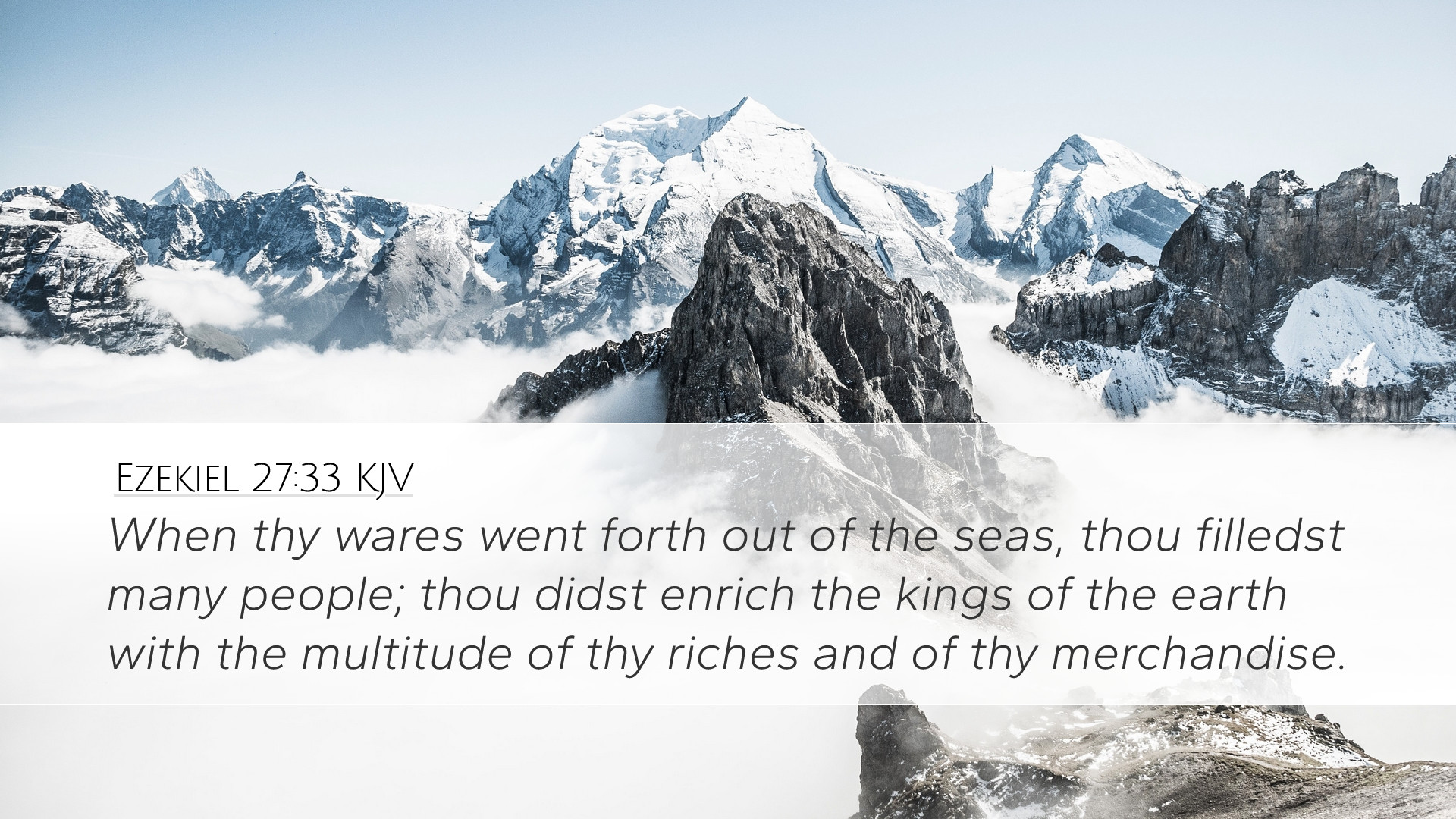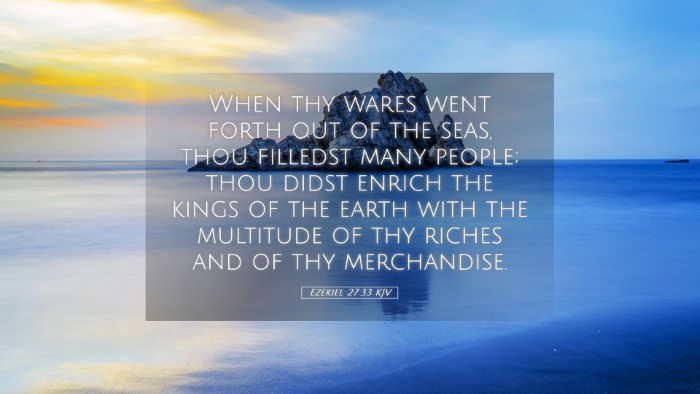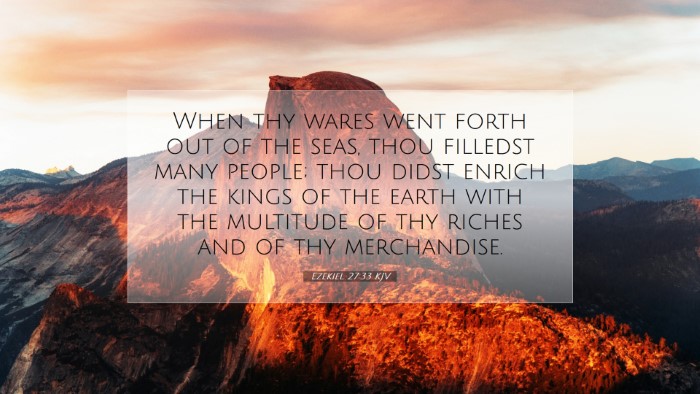Ezekiel 27:33 - Commentary
Ezekiel 27:33 presents a vivid portrayal of the lamentation for Tyre, the ancient Phoenician maritime city that represents the height of commercial prosperity and economic power. The verse reads:
"And when thy wares went forth out of the seas, thou filledst many people; thou didst enrich the kings of the earth with the multitude of thy riches and of thy merchandise."
This commentary synthesizes insights from various public domain theological resources, providing a comprehensive understanding of the text for pastors, students, and scholars alike.
Contextual Background
The backdrop of Ezekiel’s prophecy is critical for understanding this verse. Tyre was a dominant port city, serving as a hub for commerce between the East and West. The city’s wealth was derived from its maritime trade, and it held significant influence over other nations.
Historical Context
Matthew Henry notes that Tyre's economic practices not only amassed wealth but also contributed to the moral decline of its traders. The lust for profit and power often led to exploitation, underscoring the city’s fall from grace.
Theological Insights
Within the verse, we see several theological implications that resonate with the broader narratives of Scripture.
- Human Pride and Commerce: Albert Barnes emphasizes the danger of overreliance on material wealth. Tyre's riches symbolized human pride and self-sufficiency, which ultimately led to its downfall.
- Divine Judgment: Adam Clarke points out that despite Tyre's wealth, God's providential judgment would not spare them. The passage is a reflection on how the accumulation of riches does not equate to divine favor.
- Global Impact: The verse highlights the interconnectedness of nations through trade. Ezekiel wants to illustrate that the downfall of Tyre will create ripples across the world, affecting "many people" and "kings."
Literary Structure and Device
Ezekiel employs a lamentation style, which is a common literary device in prophetic literature. This serves to underscore the sorrow over Tyre’s fate while simultaneously delivering a divine message about the consequences of sin.
Imagery of Commerce
The imagery used in this verse is potent. The sea, often symbolic of chaos and restlessness, becomes a source of commerce and wealth. Henry comments on how this paradox reflects the spiritual state of the city—though prosperous outwardly, it was spiritually bankrupt.
Practical Applications
For modern Christians, Ezekiel 27:33 has vital implications. It invites believers to reflect on their relationship with wealth and resources.
- The Perils of Materialism: This verse serves as a warning against placing one's trust in material wealth. It challenges believers to consider where their true security lies.
- Corporate Responsibility: The interconnectedness illustrated in the passage highlights the responsibility of modern nations and corporations to engage in ethical practices that do not exploit others.
- A Call to Humility: Recognizing the fleeting nature of riches, believers are encouraged to cultivate a spirit of humility and reliance on God over earthly treasures.
Conclusion
Ezekiel 27:33 encapsulates a profound warning regarding pride, wealth, and divine judgment. The commentary draws from historical context, theological implications, and practical applications, providing a rich resource for pastors, students, scholars, and anyone seeking to understand the gravity and depth of this power-packed verse.
In the light of Ezekiel's proclamation, may readers be inspired to seek lasting treasures and reflect on the more profound wealth found in faith and relationship with God, far beyond the transient riches of this world.


